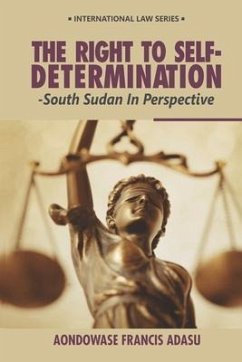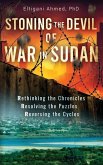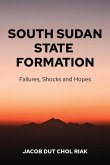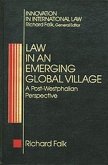The concept of Self-Determination in International Law stems from a natural and essential right for all human beings, the exercise of which should not be considered as an attempt to undermine the territorial integrity, sovereignty or political unity of States. It is the principle by which a people freely pursue their economic, social and cultural development. In essence, it is an inalienable right of self-government contained in Article 1 (2) of the United Nations Charter and in numerous other international instruments. The modes of implementing this right include the establishment of a sovereign and independent state, the association or integration with an independent state, or the emergence into any political status freely determined by a people. The right is also enshrined in the African Charter on Human and Peoples Rights which is domesticated in Nigeria and tested in several judicial pronouncements by the Nigerian courts. The right to self-determination within the African context initially was primarily focused on peoples that suffered under colonialism and foreign occupation. However, with the emergence of the African Charter on Human and Peoples Rights, evidence of a people systematically oppressed and denied participation in the governance of a state are grounds upon which that right can be invoked. It is interesting to note that Ethiopia and Eritrea have specifically included the right to self-determination in their national constitutions. South-Sudan reaffirmed this right as the foundation for equal statehood amidst the flurry of oppressive tendencies and denial of participation in governance and equal rights from Sudan. This book explores the contentious issues, implications of the philosophy that undergird the emergence of South Sudan as a sovereign state and its rhetorics in international law and relations







